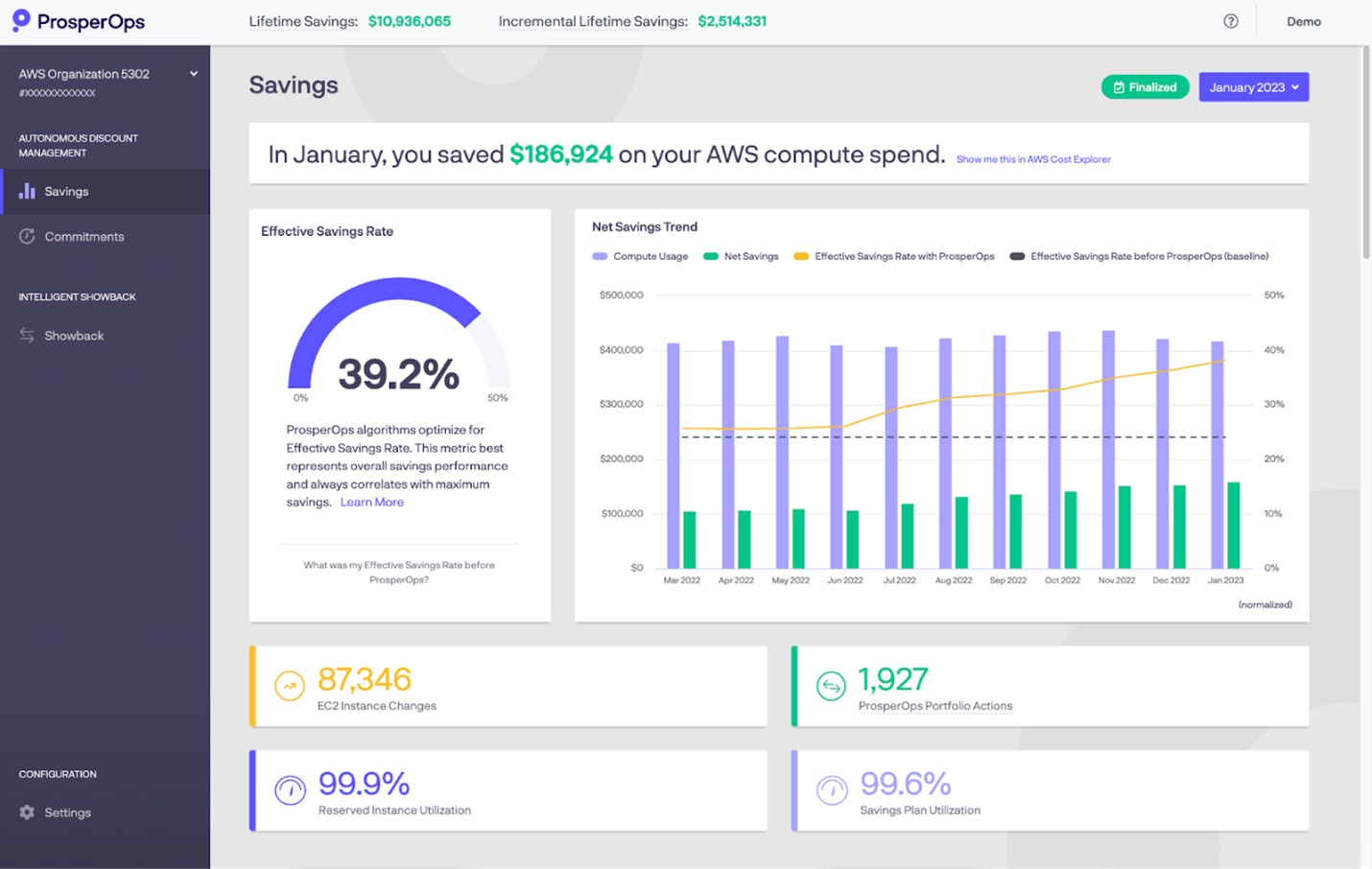Autonomous cloud cost optimization platform vendor ProsperOps announced on Feb. 23 that it has raised $72 million in a new round of funding led by H.I.G. Growth Partners.
ProsperOps designed its platform for CloudOps professionals, and it adheres to what are known as FinOps principles for cloud cost optimization. The primary obstacle mentioned in the "2023 State of FinOps" report by the FinOps Foundation is persuading engineers to assume responsibility for minimizing cloud expenses, despite the fact that up to 33% of cloud spending is believed to be unnecessary.
That's an obstacle that ProsperOps hopes its platform can help organizations overcome.
Related: Beyond Rightsizing: When It Comes to Cloud Cost Optimization, Think Big
ProsperOps claims that its platform currently analyzes nearly 20 million customer changes a month in the cloud and in aggregate helps its users save nearly $800 million in cloud compute usage costs.

ProsperOps' dashboard provides a visualization of automated cloud cost optimizations.
"Our founding team started the AWS [Amazon Web Services] managed services business at Rackspace, where we saw firsthand how hard it was to optimize customer environments without automation," Chris Cochran, CEO of ProsperOps, told ITPro Today. "So, we started ProsperOps to leverage automation, AI, and algorithmic management — to help cloud customers generate better savings outcomes."
How ProsperOps Embraces FinOps to Enable Cloud Cost Optimization
The ProsperOps platform makes use of a number of different tools and techniques to help organizations with cloud cost optimization, according to Cochran.
"We make use of a variety of linear programming and AI toolsets to forecast, decompose, and analyze volatile time series data patterns and solve complex optimization problems," he said.
Related: 5 Myths About Cloud Pricing
Beyond just figuring out what to optimize, ProsperOps enables organizations to take an automated approach to realizing cloud cost benefits. Cochran said that once the ProsperOps service is enabled, customers don't need to run reports or log into the cloud console. Similar to robo-advisors in the personal investing space, the ProsperOps platform autonomously executes a sophisticated strategy that enables an organization to achieve more savings than a human ever could, he said.
It is in ProsperOps' best interest to help organizations save as much as they can, since that's how the company makes its money. ProsperOps charges its users a small percentage of the savings generated.
"Incentives are aligned, and we only make money if our customers save money," Cochran said. "In the end, our service generates more than we charge so we are adding to our customers' cloud budgets, instead of consuming it."
Challenges of FinOps and Cloud Cost Optimization
Cloud vendors including AWS all have efforts to help users manage and optimize costs, but there is more that needs to be done, according to Cochran.
"I don't think AWS is missing anything with regard to wanting their customer base to be as efficient as possible," he said. "AWS is actively involved in helping their customers optimize and has built a partner ecosystem around the capability, and we work closely with those teams — there is just so much work to do."
Engineering teams are often overworked and have a bias to solving problems internally with their own hands, using reporting tools they either buy or build, Cochran said. In his view, that makes sense for many optimization use cases, but it leads to situations where they cannot prosecute all the work that needs to get done concurrently.
"Automated discount management is a no-brainer for most organizations," Cochran said. "It's a use case where algorithms will outperform even the best human in almost every case."
To date, ProsperOps has focused exclusively on AWS, but with the new funding that will change as the company expands the scope of its platform.
"We currently serve customers running on AWS, but we see an increasing number targeting workloads for [Microsoft] Azure or GCP [Google Cloud Platform]," Cochran said. "The investment will allow us to build out similar FinOps automation for those platforms."
About the author
 Sean Michael Kerner is an IT consultant, technology enthusiast and tinkerer. He consults to industry and media organizations on technology issues.
Sean Michael Kerner is an IT consultant, technology enthusiast and tinkerer. He consults to industry and media organizations on technology issues.




